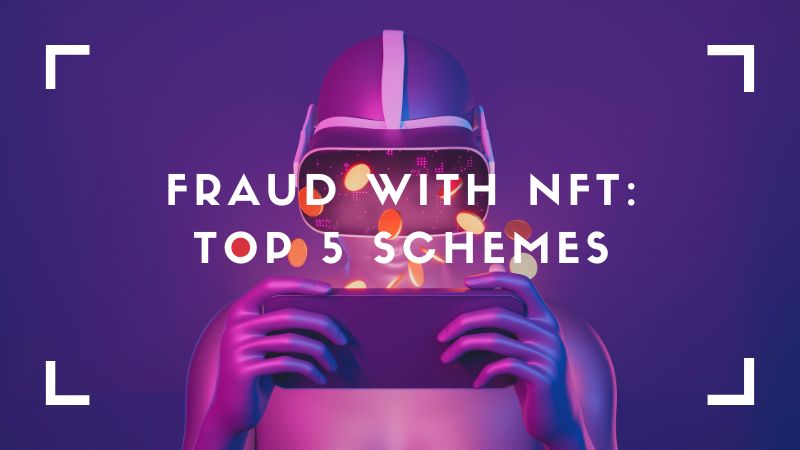NFT - Non-Fungible Token, representing a unique digital asset often from the world of art (digitized artwork, musical composition, etc.). Using blockchain technology, NFTs can be bought or sold for cryptocurrency. However, engaging in such transactions can expose individuals to various types of fraud.
Let's explore several schemes that scammers employ in the buying and selling of NFTs.
Pump and Dump Scheme
Translated from English, this phrase means "Pump and Dump." The price of an asset is artificially inflated to facilitate profitable sales. This scheme applies to any type of asset, including NFTs.
To increase the price, the token owner may repeatedly resell it to themselves. The continuously rising price attracts the attention of other buyers who begin acquiring the asset as an investment opportunity. However, in most cases, only the scammers profit.
Plagiarism Scheme
In the world of NFTs, there are numerous examples of successful projects. For instance, in the Bored Ape Yacht Club project, artwork featuring apes can reach prices exceeding a million dollars. Such images are highly lucrative to counterfeit, especially considering that the drawings themselves are relatively simple from an artistic standpoint. The NFT market is saturated with such forgeries.
Another form of fraud is selling images copied from the internet as one's own. Therefore, buyers of digital artwork need to be aware that each image can be verified by conducting a search on specialized websites on the internet.
Phishing
In phishing, scammers create fake websites that closely resemble legitimate ones. When users visit these counterfeit sites, they engage in transactions that result in the loss of their cryptocurrency.
For example, in December 2021, a user from the well-known OpenSea website followed a link provided by a member of the Bored Ape Yacht Club Discord community. The user hoped to obtain an animated version of a Bored Ape Yacht Club (BAYC) asset. However, the link led to a phishing site, and as a result of the transaction, the victim unknowingly transferred their digital asset from their crypto wallet to the scammer's wallet.
Fake Celebrity Accounts
A scammer can open a profile of a renowned artist on a marketplace and sell artworks claiming they are from the artist. This led to the theft of artworks belonging to the famous artist Derek Laufman.
Fake accounts can also exist on social media platforms, not just celebrity websites. Even Bill Gates fell victim to this type of fraud.
Rug Pull Scheme
This phrase translates from English as "pulling the rug." According to this scheme, scammers raise funds for a new crypto project associated with NFTs. This process is accompanied by aggressive online advertising, including on social media. Such hype is characteristic of fraudulent projects.
However, once the project disappears, along with its associated websites and profiles, the scammers keep the collected funds. Decentralized cryptocurrency exchanges (DeX) connected to decentralized finance (DeFi) are particularly susceptible to this type of scheme.
According to experts, project initiators often do not initially perceive their projects as fraudulent and genuinely hope for profits. However, when it becomes clear that these hopes will not materialize, the temptation to keep the funds already acquired may become overwhelming.
These listed schemes do not cover the entire range of fraud in the NFT market. There are risks associated with NFTs that stem from the legal unregulated nature of the cryptocurrency market. For example, the U.S. Securities and Exchange Commission (SEC) considers NFTs as a type of security. A lawsuit has been filed, but a final resolution has not been reached yet.
Currently, the NFT market is growing rapidly, and purchasing unique tokens is becoming a form of investment. However, caution must be exercised. It is crucial to carefully vet sellers to avoid losing funds to scammers. Another rule that must be strictly followed is never to disclose private keys or the secret phrase of your crypto wallet to anyone. Users who express interest in such information should be immediately blocked.

